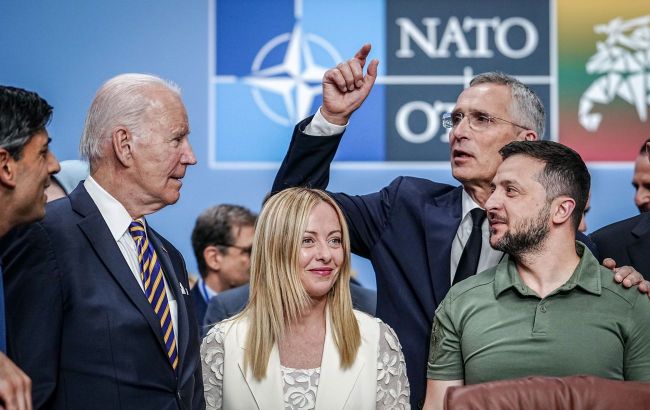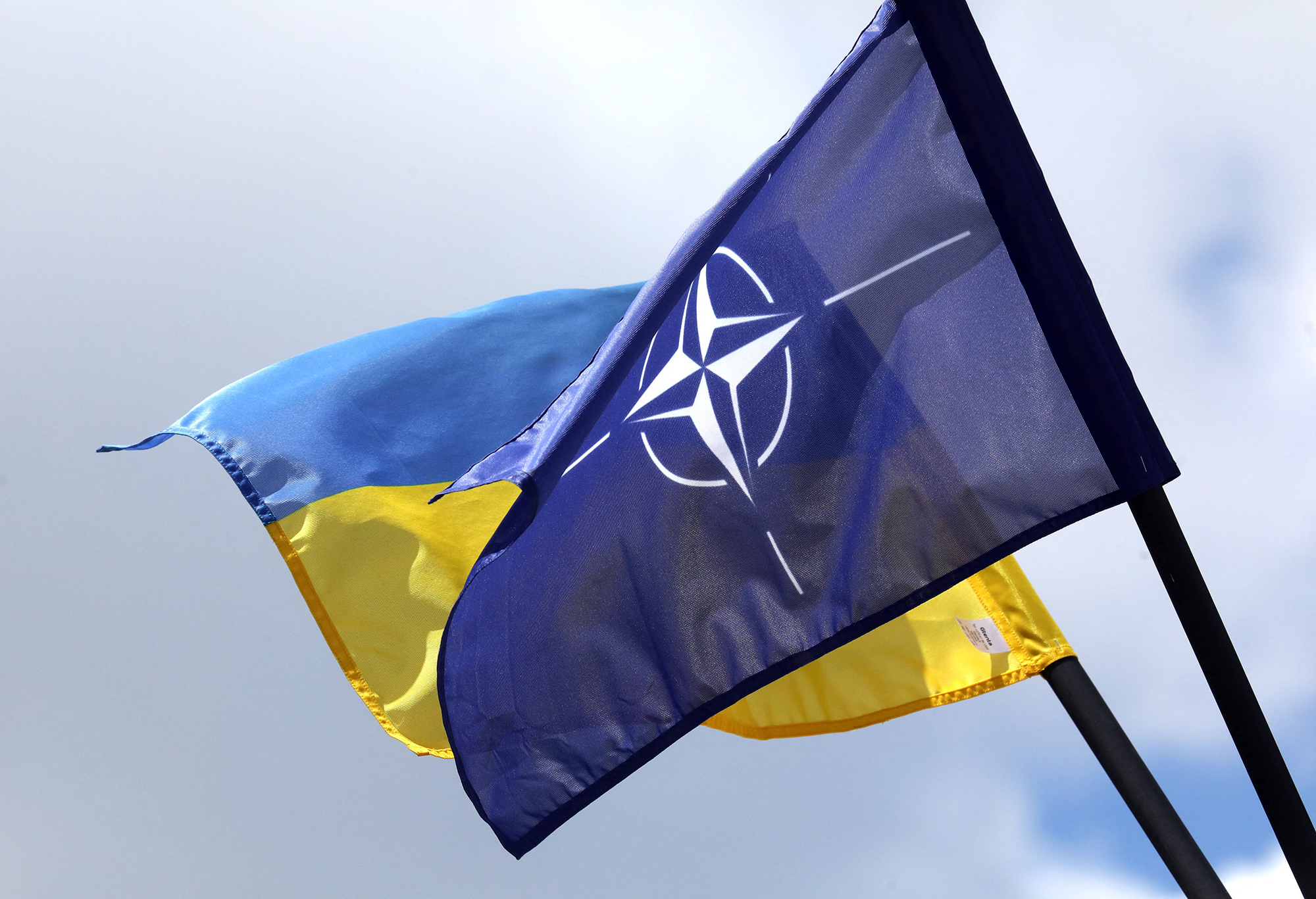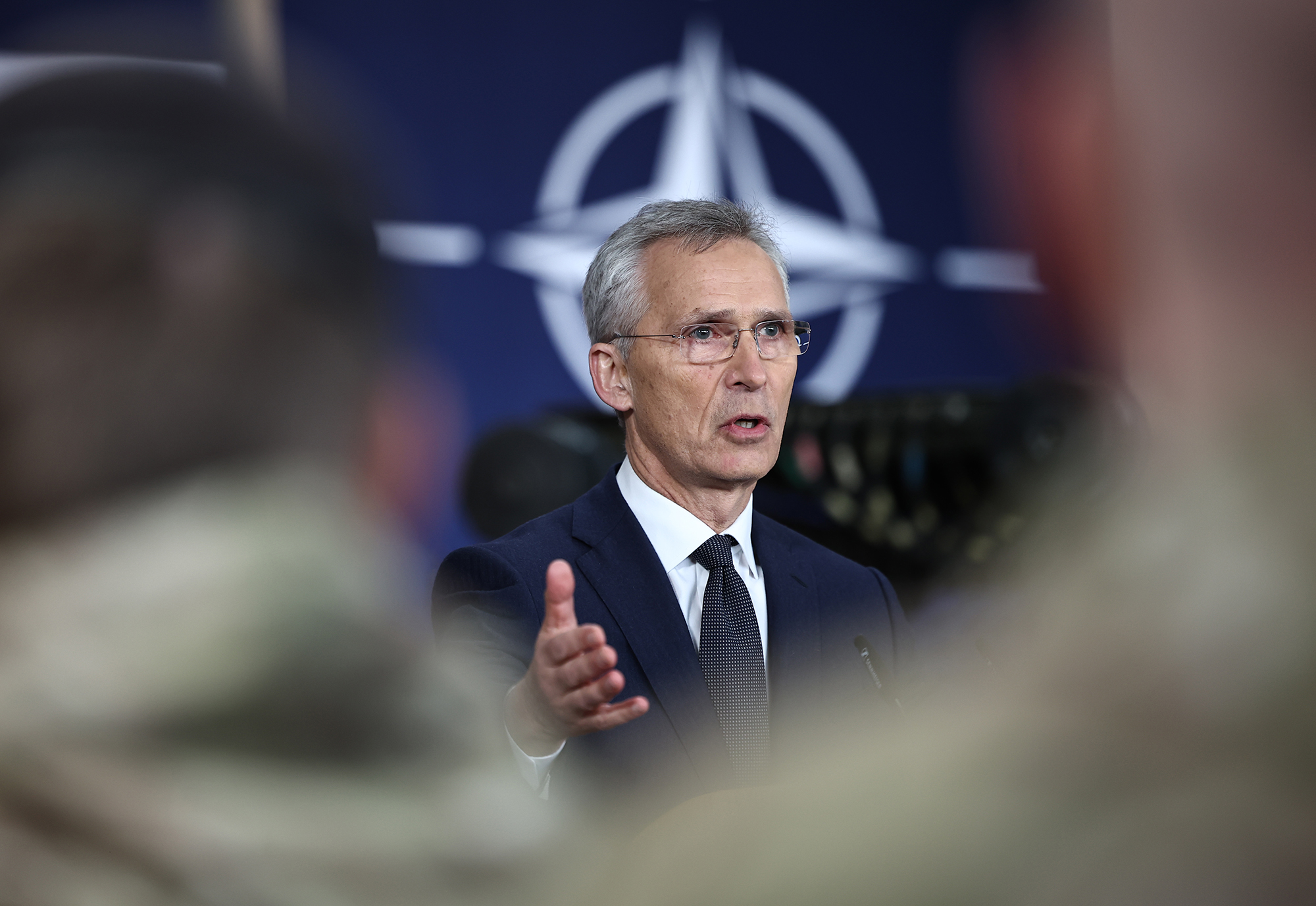NATO Summit in Washington: What Ukraine seeks and might achieve
 Photo: What Ukraine should expect from the NATO Summit in Washington (Getty Images)
Photo: What Ukraine should expect from the NATO Summit in Washington (Getty Images)
Leaders from 32 NATO countries will gather for a summit in Washington in a few weeks. One of the main topics of the Washington meeting is expected to be the support for Ukraine and its future in the Alliance.
What Ukraine wants, what it expects, and what it might receive at the Washington summit are detailed in the material by RBC-Ukraine.
Contents
What are Ukraine's expectations from the NATO Summit
At the beginning of this year, President Volodymyr Zelenskyy mentioned that the Washington summit should bring Ukraine closer to NATO membership.
"We would like to see a real step from NATO countries that brings Ukraine closer to the Alliance. To avoid stagnation. We want this to be a successful and powerful summit (NATO Summit in Washington – Ed.) so that NATO countries show that they are not afraid of Russia," he said.
Kyiv had similar expectations for the previous summit. At the July meeting in Vilnius, the Ukrainian side wanted to receive an official invitation to join the Alliance and a specific membership timeline. Although an invitation was not issued at that summit, Ukraine's path to NATO became "shorter." Ukraine was assured that it would become a part of the Alliance immediately after the end of the war and would not need to fulfill the Membership Action Plan for this.
However, the desire to receive an invitation to the Alliance has not disappeared, and Kyiv would like this from the Washington summit. "Ukraine needs an invitation to NATO. This is possible this year," Zelenskyy said in April.
An invitation would be a legal guarantee that Ukraine would become a NATO member after the war's end. Such a commitment would be more reliable than all previous political promises of NATO leaders.

Leaders of 32 NATO countries will meet in Washington in July (photo: Getty Images)
The Chairman of the Committee of the Verkhovna Rada of Ukraine, Oleksandr Merezhko, told RBC-Ukraine that obtaining an invitation to NATO is the most important goal for the Washington summit.
"In an ideal scenario, it would be to get an invitation, but we understand this is unrealistic. I believe there is a minimum program and a maximum program. Ideally, it's an invitation or a formulation that clearly states the beginning of the invitation process. The minimum is something more than the Vilnius summit. That is, confirming the irreversibility of the path to NATO," he said in a comment to RBC-Ukraine.
Another important issue that Ukraine would like to see on the Washington summit's agenda is the continuation of support for Ukrainians in repelling Russian aggression. In May, Deputy Prime Minister for European and Euro-Atlantic Integration Olga Stefanishyna emphasized that this summit should "become a platform for making strategic decisions" regarding strengthening Ukraine's air defense.
In particular, as Zelenskyy suggested in an interview with The New York Times, the NATO Summit could decide on additional Patriot systems for Ukraine.
What Ukraine might receive at the NATO Summit
Ukraine's desire to receive a political invitation to NATO at the Washington summit will most likely once again be unmet. In April, The New York Times reported that Germany and the US opposed inviting Ukraine, a stance later confirmed by Deputy Prime Minister Stefanishyna.
Julianne Smith, the US Ambassador to NATO, effectively confirmed the American position. At the end of May, she stated that an invitation for Ukraine to join the Alliance would not be on the agenda of the Washington summit. However, the ambassador said the summit's decision would contain "new formulations" regarding Ukraine's aspiration to become a NATO member.
"I'm certain that we also have language expressing that Ukraine will become a member of the Alliance... The exact language, exact what we will agree is what Allies are now discussed among Allies but I'm confident to have a good solution agreement by the summit," said NATO Secretary General Jens Stoltenberg recently.
Discussions within the Alliance are ongoing about what these new formulations regarding Ukraine's membership should be. In particular, a new term—"bridge" to membership—might replace the familiar assurance that NATO's "doors" are open to Ukraine.
According to CNN, Washington and Berlin support the term "bridge" (which is also mentioned in the security commitments between Ukraine and the US) in the summit's decision. At the same time, NATO's eastern flank and Britain insist on a promise of an "irreversible path" (the NATO Secretary General voiced such a formulation). According to Merezhko, it is most likely that the leaders of the 32 NATO countries will use the first formulation—"bridge"—in the summit's decision.
"I am a bit skeptical about metaphors in documents. Previously, there was the metaphor 'doors,' and now it may be 'bridge.' I believe there should be concrete formulations about irreversibility. However, the main idea that should be expressed in some formulations is that Ukraine's moral decision to become a NATO member has already been made politically. The question is only a matter of time," said the head of the Verkhovna Rada Committee to RBC-Ukraine.

Stoltenberg suggested that NATO promise Ukraine long-term support (photo: Getty Images)
Additionally, the Washington NATO Summit will also focus on assisting Ukraine in its war with Russia. Ahead of the summit, Stoltenberg proposed that NATO countries commit to supporting Ukraine in the long term.
Since the beginning of Russia's full-scale invasion, NATO countries have collectively provided Ukraine with around 40 billion euros in military aid annually. Stoltenberg proposed securing this level of assistance for the next five years. This would prevent a reduction in support for Ukraine, for example, in the event of Donald Trump's return to the White House, who has repeatedly threatened to stop helping Ukraine.
There is no consensus within NATO regarding Stoltenberg's proposed long-term plan. Italy, in particular, has opposed it. However, the Secretary-General plans to discuss this issue at the Washington summit.
The Secretary-General explained that they must continue this level of support for as long as necessary, stating that reliable long-term support would send a clear message to President Putin that he cannot outlast them.
Even if NATO does not agree on Stoltenberg's idea at the summit, it will not be a tragedy for Ukraine. According to Merezhko, long-term support commitments have their drawbacks. First, the war may end sooner. Second, Ukraine's needs may increase in the future.
"It is better to have sufficient military aid each year, as the situation may change. Of course, we need as much help as possible, but the situation is quite dynamic. We may need more support next year. Therefore, it is better to calculate support based on the development of the situation," he explained in a conversation with RBC-Ukraine.
Sources: CNN and The New York Times, statements from NATO Secretary-General Jens Stoltenberg, Ukraine's Deputy Prime Minister Olha Stefanishyna, Ukraine's President Volodymyr Zelenskyy, US Ambassador to NATO Julianne Smith, and comments from the Chairman of the Verkhovna Rada Committee on Foreign Policy, Oleksandr Merezhko.
Previously, RBC-Ukraine reported on how Ukraine has progressed towards NATO membership from gaining independence to today.

